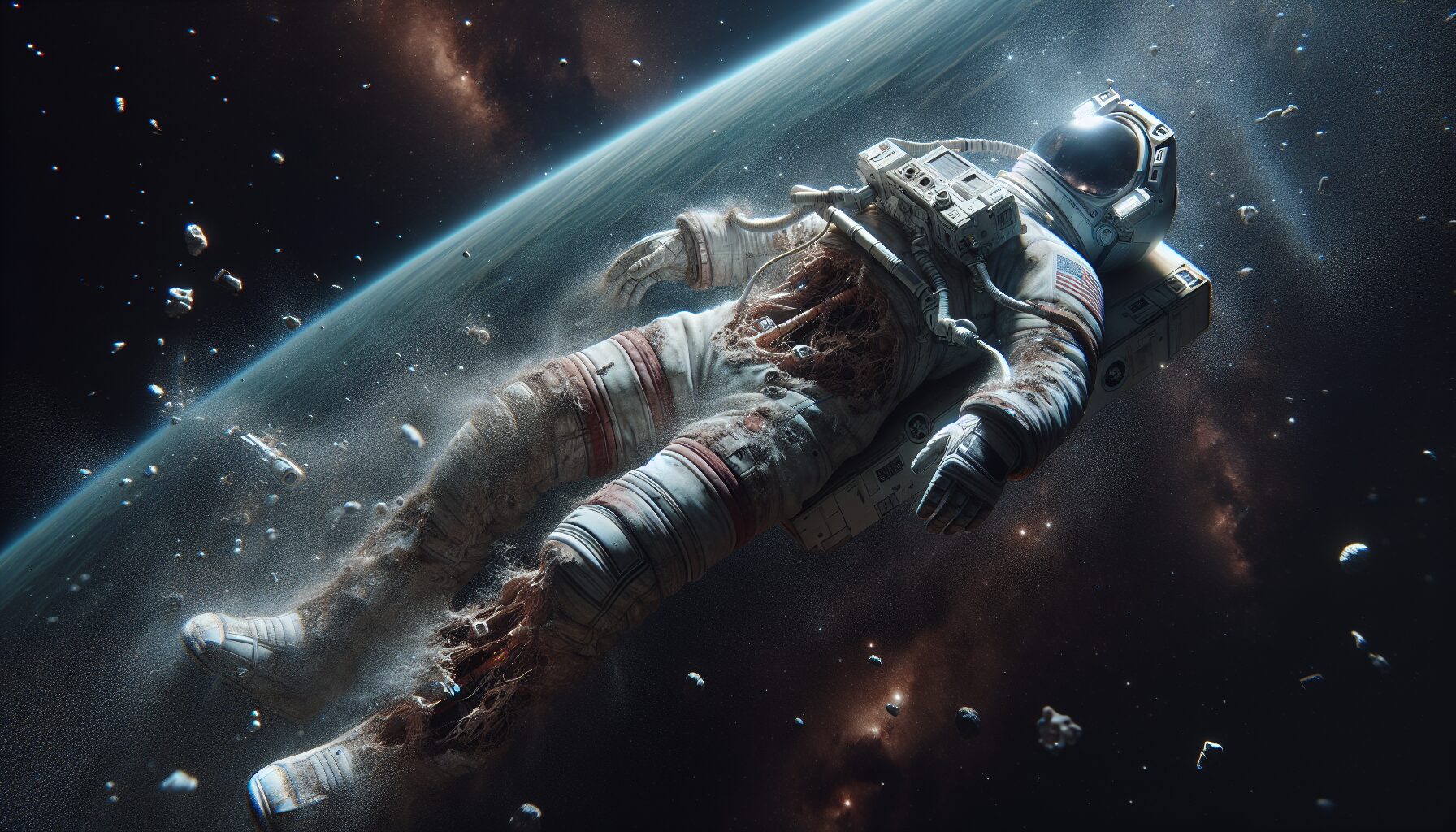When considering the vast expanse of space, one intriguing and somewhat macabre question often arises: what happens to a human body in the vacuum of space if it were to succumb to death? In the absence of Earth’s gravity and atmosphere, the process of decomposition would take on a different trajectory.
Absence of Atmosphere and Its Effects
In space, there is no atmospheric pressure, and temperatures are extreme, often close to absolute zero in the shadow of celestial bodies. Under such conditions, decomposition would be a markedly different process than on Earth. Without atmospheric pressure, the body would not be subject to the natural cycle of decomposition by aerobic bacteria, for there is little to no oxygen available to sustain these microorganisms. As explained by Dr. Tara Ruttley, a former NASA Science Office for the International Space Station, “in a zero pressure environment, it’s more about the temperature effects and absence of atmospheric pressure that influences decomposition.”
The Role of Temperature
- Extreme Cold: If a body were exposed directly to the cold vacuum of space, temperatures would make it freeze relatively quickly. The body would essentially become a mummy, preserved from decay by freezing, much like how ancient creatures are preserved in permafrost on Earth.
- Solar Radiation: In direct sunlight, however, temperatures can soar, leading to potential preservation through desiccation. This rapid water loss prevents microbial activities, effectively mummifying the body.
Impact of Vacuum Environment
In the vacuum of space, bodies are exposed to a radiation-rich environment, potentially causing degradation of tissues at a molecular level. However, in practical terms, the lack of air and moisture means that the typical oxidative processes contributing to decay on Earth are absent. According to research conducted by planetary scientists, a body in space could remain relatively intact for millions of years.
“It’s the frozen temperatures and lack of air in space that stop decomposition,” explains Dr. Eugene Parker, an astrophysicist famous for pioneering heliophysics.
Conclusions
While unlikely to experience the traditional decay witnessed within Earth’s cushioned biosphere, a body in space would undergo preservation through freezing or mummification, contingent on its exposure. This stark contrast to terrestrial decomposition highlights not only the eerie aspects of human vulnerability beyond Earth’s borders but also the enduring quest of human presence in the heavens. For more insightful details on the effects of space conditions, you can explore further [here](https://www.space.com/what-happens-body-dies-space).

Comments